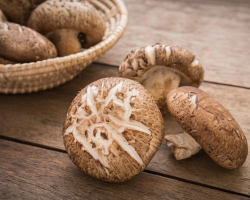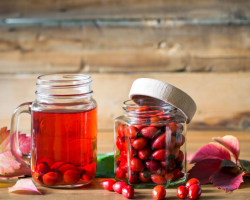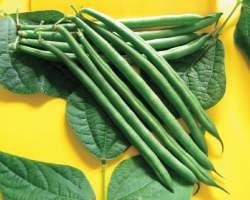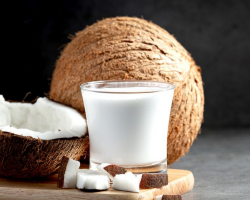Muslim post in Ramadan is good for health. Read more in the article.
Content
- How is Muslim post in Ramadan useful?
- Studies of the Muslim post - madness or means of cleansing the body and reason?
- The benefits for the health of the Muslim post in Ramadan
- Useful tips for Ramadan
- How is Muslim post different from other types of post?
- Is it worth a patient in Ramadan: what could be harm?
- What else is prohibited in the Muslim post of Ramadan?
- In what cases can a Muslim be forgiven and can continue the post?
- Video: Ramadan - not diet, not detox, not autophagy! Dr. Bilyal
- Video: What happens to the body during fasting to Ramadan?
- Video: I'm in shock! See what the benefit of fasting in the month of Ramadan! How is the post in Ramadan useful?
Doctors are sure that the post helps to unload the digestive and nervous system. However, for Muslims, which there are about 900 million around the world, the month of Ramadan is not a way to normalize their health, not a way to lose weight, but the instruction prescribed in the Qur'an.
Read on our website another article on the topic: "List of Muslim holidays for 2021-2022". You will find a table in which everything is described in detail.
According to the laws of Islam, children under 12 years of age, people having illnesses, travelers, lady women and ladies during menstruation may not fast. If a person has taken on a similar vow, he should not only take water and food all day, but also not to smoke, not to enter into sexual relations and not to do bad things. Ramadan is a great time for prayers and good deeds. Read more more.
How is Muslim post in Ramadan useful?

Thanks to this “break” in food, the body receives energy, burning carbohydrates. It is the excess of the latter (including sugar), that entails the process of laying fat. Glycogen forms in the liver. The sugar content in biological fluids is directly affected by insulin - a hormone formed in the pancreas. It reduces the number of sugar in the blood, transforming into glycogen. What else is Muslim post in Ramadan?
- In the body of full people, insulin does not function like that of thin and healthy. This leads to the development of type 2 diabetes in old age and the LADA type in 40-year-old people. Multivitamins and protein are recommended, as well as excess water.
- The post, in turn, reduces the sugar content in the biological fluid. This is the main reason for quick weight loss.
However, for Muslims, the post is a spiritual phenomenon approaching Allah. It is often believed that indulging in restrictions from worldly pleasures, a person not only tempers his will, but also acquires some kind of insight and increased awareness of reality.
Studies of the Muslim post - madness or means of cleansing the body and reason?
Dr. Solimen from the University of Aman in Jordan, performed several studies of the Muslim post. He observed changes in the body of volunteers observing Ramadan. A comprehensive blood test was taken. According to the latter, it was noted that the level of glucose in the body of many men and women rose sharply. At the same time, they significantly lost weight (4-7 kg). The remaining indicators remained unchanged.
Dr. Azi-Zi, who did not notice changes in the level of phosphorus, protein, calcium and hormones in the body of people who follow the instructions prescribed in the Qur'an, also came to this conclusion. Therefore, moderate starvation almost does not affect the human body. As for the Islamic post, Muslims study this phenomenon from childhood and their organisms are genetically adapted to this phenomenon. Unlike Europeans, they have practically no hungry faints and ailments. Therefore, fasting is not madness, but a means of cleansing the body and reason.
The benefits for the health of the Muslim post in Ramadan

According to the Tunisian Nutrition Institute, useful cholesterol increases in fasting - 20%. Doctors also observe a useful trend in the content of fats and glucose in the body of Muslims. Therefore, the post protects the heart. After all, it is cholesterol on the vascular walls that is the cause of diseases of the most important human organ. What is the benefit of the health of the Muslim post in Ramadan?
- Poor cholesterol is always reduced, since a Muslim does not use saturated fats to Ramadan.
- Ramadan also saves from a stroke. After all, systems and human organs consume part of their own fat.
- As a result of the post, the heart begins to work more efficiently. The accumulated deposits burn out, the likelihood of atherosclerosis and pressure jumps is reduced.
- In Ramadan, the content of fluid in the blood and blood in the vessels decreases.
- Fasting perfectly affects the skin.
- Human immunity increases and the likelihood of allergic diseases is reduced.
- The post is even able to smooth out the effect of cancer.
- It has a beneficial effect on the pancreas. She is resting. If this body is overloaded, then it ceases to fully work, and begins to accumulate harmful sugar.
But the liver is activated during fasting. Together with feces and urine, toxins, toxins and accumulated fats are removed from the body. The liver cells are updated, restored. Also, religious starvation favorably affects the kidneys, reduces blood pressure. The concentration of harmful salts is also reduced: phosphates, oxalates. That is why Ramadan can also be an excellent prevention of stones and tumors.
During the post, more active cell operation occurs, the process of their regeneration is accelerated. The pressure in the eyeball also decreases, improving the condition of patients with glaucoma. Another post is the only way to combat joint diseases. This is effective purification and prevention of gout.
Useful tips for Ramadan
As you know, Ramadan lasts a whole month. Food should be without excesses, but consist of products of all groups: meat, fish, poultry, grain, dairy products. Sweet dishes and food of increased fat content are banned. Of course, you do not need to cook so that a crispy crust appears, it is better to extinguish or boil food. During Sukhura, it is strictly forbidden to overeat and drink a lot. Indeed, in this way, a Muslim loses mineral salts that are needed to maintain tone.
Use such food during Sukhur:
- Complex carbohydrates - They will help to cope with the feeling of hunger. These are cereals, fruits, vegetables, herbs. With them, food is absorbed longer, therefore, a person feels satiety for a long time.
- Dates - A healthy source of sugar. It also contains: fiber, carbohydrates, magnesium and potassium.
- Almond - Gives protein with small amounts of fat.
- Bananas - It should be used to make up for the number of necessary carbohydrate compounds and potassium. Also in these fruits there are magnesium.
It is forbidden to smoke in Ramadan. Those who are difficult to abandon a bad habit are recommended a month before fasting to reduce the daily dose of nicotine. Of course, one should forget about bad thoughts and pay attention to charitable deeds. You should not only fast, but also pray. Help will not be superfluous.
How is Muslim post different from other types of post?

Today, the uniqueness of Ramadan is confirmed by many scientists. While working on their spirituality, Muslims do not have a malnutrition or overeating. On Iftar or Sukhur, people use enough food for life. But, at the same time, they lose their harmful food that destroys the body. In numerical significance, Muslims in Ramadan consume 2/3 calories from the average human norm.
What is the difference between the Muslim post of Ramadan and other types of post:
- Ramadan does not tolerate coercion - A man gives himself a vow voluntarily. It should be a rush from above, and not a banal desire to lose several kg. This is the month during which the Muslim self -education takes place. The believer is working on self -control, on patience. The post also helps to form a lipstate (weight center of the human body). As soon as a person ceases to perceive weight loss as a catastrophe, no overeating after starvation occurs.
- It is important not just to starve, but to refuse excesses in food and habits- A Muslim must realize that the superfluous everything that adversely affects the believer and his body: it is both smoking and alcohol, and harmful, fried food, fatty dishes, etc.
- In Ramadan, believers do not eat selectively -Before dawn, they have a light breakfast, and after sunset you need to eat something sweet (dates or fruits). This is necessary in order to avoid hypoglycemia, which can occur due to a dense late meal.
- Evening prayers accelerate metabolic processes in the body. By the way, about 200 kcal is burned during the prayer of Tarauh. But Salyat is a full exercise for all folds and muscles.
- Ramadan is a great training for smokers and coffee lovers. Many Muslims hope that after Ramadan they will forget about bad habits.
- The post has a psychological effect - it adds calm to the soul. The Prophet advised: "If someone provokes you to something, tell him that you are following the post.". Ramadan is deprived of hostility. Police notes a sharp deterioration in the number of crimes
Surprisingly, Ramadan gives energy. Many Muslims note that they feel good. Each dumped gram of weight and every day on proper food, improves the viability of the body: a person wants to read prayers more, work hard, he feels a surge of strength. Ramadan is the gift of Allah, the real blessing. As well as salvation for personalities with bad habits and excess weight. It is important that they themselves realize this!
Is it worth a patient in Ramadan: what could be harm?

According to Islam, Muslims undergoing treatment in the clinic may not be observed. However, some of them do not want to violate traditions and decide on an experiment. Is it worth it to fast in Ramadan? What could be harm? Here are a few recommendations for such people:
- For diabetics, the post will be beneficial - Not only weight will decrease, but also manifestations of the disease and its effect on the body will decrease. But if you take Orinaaz (a drug for high sugar) and its analogues, then you should reduce the dose of the drug by 1/3. Take it during an Iftar, not in the morning. If you notice that sugar falls in biological fluid, stop the post. Allah will not be angry for this!
- In no case do not starve if you are a diabetic that insulin takes. If you decide, do this, constantly consulting with a doctor. Remember that the interruption of the post with sweet products is destructive to you. Measure the sugar level before eating and after the end of Ramadan. Follow your well -being.
- The post reduces blood pressure, so the cores can observe Ramadan. Especially if they have hypertension of mild and moderate severity, as well as problems with weight. But reduce the diuretic. And take a medicine like tenormil only before Sukhur. You cannot fast if you have serious heart problems and pressure rises to critical marks.
- If you are susceptible to migraines, you are not recommended post. It's all about increasing free fatty acids and the release of catecholamin. Due to the restrictions, the head will hurt even more.
- The situation with pregnant women is twofold. The Qur'an says nothing about this. However, normal for a Muslim “in position” is not to starve. For the Lord does not want a living creature inside her to suffer. It is impossible to find out thoroughly whether the hunger of the fetus will harm - even if the pregnancy proceeds easily. On the 1st and 3rd trimester, Ramadan cannot be observed.
If the girl has excellent health, and she will be allowed to do this gynecologist, then she can decide on the post.
What else is prohibited in the Muslim post of Ramadan?
Ramadan gives a Muslim a number of restrictions. If the believer violates the prescriptions, this implies a caffera in the form of a filing of alms and other actions determined by Sharia. Not only smoking and alcohol are prohibited, but also taking pills. Intimate life is not allowed in any case (that is, not only random connections, but also marital).
It is also forbidden to put an enema in Ramadan, to specifically cause vomiting, and also allow liquid to enter through the nasopharynx. Even if this happens during washing.
In what cases can a Muslim be forgiven and can continue the post?

If the believer performed the forbidden action by chance-for example, the Muslim ate something, drank or took up the cigarette, forgetting about the post. If he stopped and regretted his actions, then Ramadan may continue. However, one should not cover your weaknesses. There is a one -time chance. In what other cases can a Muslim be forgiven and can continue the post?
- You can eat forbidden food, but do not swallow it.
- You can arrive in the bathhouse for long, rinse your mouth and nose. Eyes can be painted with antimony, it is allowed to dig in the eyes and medicines.
- An accidental swallow of food remains that were between the teeth (but if the food is not more than the pea) is allowed.
- You can brush your teeth with a brush or Misvak, inhale incense.
- Allah is forgiven for blood donation and random ejaculation.
- Uncontrolled, painful nausea and vomiting is allowed.
Features of Sukhura:
- You need to eat before the dawn comes. However, you can not eat the remains of dinner.
- It is also forbidden to pass Sukhur. This is an extremely necessary period, the beginning of the new day.
- It is necessary to eat so much so that there is enough energy for a day, but do not overeat.
Features of Iftar:
- We thank Allah for his gifts, read the prayer.
- We turn to Allah with a request for a passage of sins and ask to take a post.
- After that, food is taken in sufficient, but not unnecessary quantity.
Prayer "Tarafikh" should be mandatory. It is performed in the mosque, however, if there is no possibility of visiting the temple, it can be performed at home. However, it is read only after night prayer "Isha", before the beginning of dawn. Prayer "Vitr" Performed after the night. However, during the period of Ramadan, he moves and can be made after prayer "Tarafikh".
Video: Ramadan - not diet, not detox, not autophagy! Dr. Bilyal
Video: What happens to the body during fasting to Ramadan?
Video: I'm in shock! See what the benefit of fasting in the month of Ramadan! How is the post in Ramadan useful?
Read on the topic:
- Why do women Muslims should not go to the cemetery?
- How to accept her husband’s second wife in a Muslim family: Tips
- How to determine which way to make prayers?
- How are Muslim social and family orders different from Christian?
- Why don't Muslims use toilet paper, but are washed with water after the toilet?







